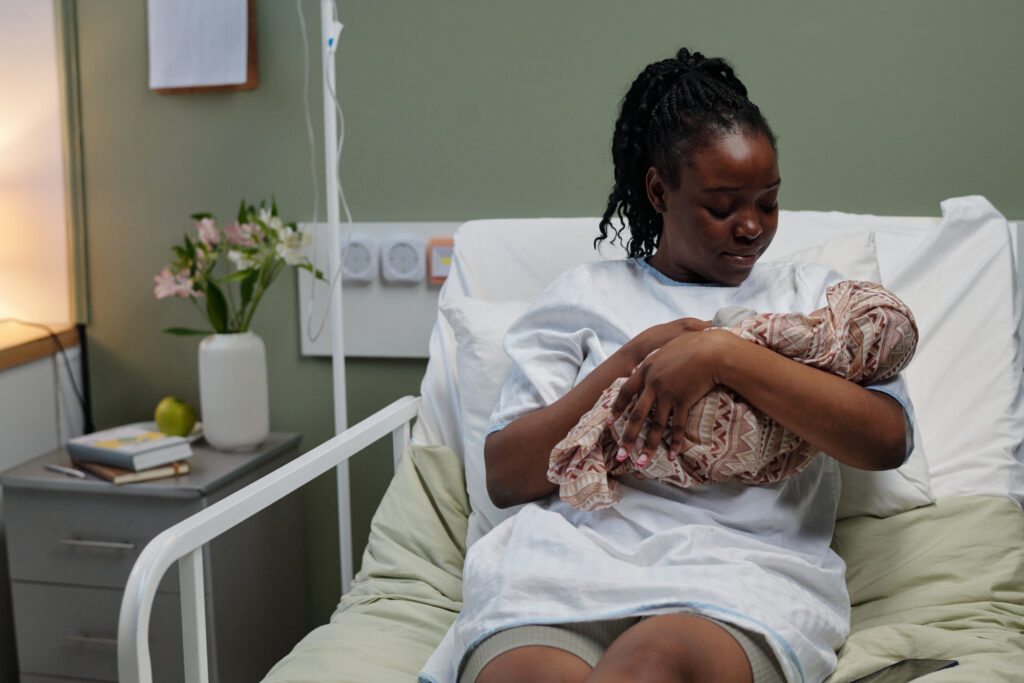
- +61 1300 704 750
- admin@parentinggenie.com.au
- PO Box 706, Townsville, QLD 4810

Though it presents difficulties, welcoming a new baby into your life is beautiful and transforming. It’s about taking care of yourself as much as about parenting and adjusting to family life. Thriving as a parent and role model requires physical healing and mental well-being. Together, these are vital parts of postpartum recovery. Postpartum healing!
Postpartum recovery might feel overwhelming to many new mothers. Your hormones are shifting, and your body is healing. At the same time, you’re learning to care for your baby while balancing the needs of your family. This book offers practical advice for navigating this new era and ensuring you feel supported.
During pregnancy and delivery, your body undergoes remarkable changes; postpartum recovery is your chance to recover. Whether your delivery was a C-section or a vaginal birth, you need to treat yourself kindly and patiently.
1. Take It Slow and Rest: Postpartum Healing
Rest is not just a luxury but also a need following childbirth. While a newborn may sleep little, give rest priority whenever you can. Ask friends, family, or your partner to assist with infant care or housework. Recall: Your body needs time to repair; rehabilitation is not a race.
2. Maintenance of Your Perineum
Should you have a vaginal delivery, your perineum—that space between the anus and the vagina—may be painful. If your doctor approves, help comes from over-the-counter painkillers, warm baths and ice packs. Keep the area dry and clean; follow your healthcare practitioner’s advice regarding tears or sutures.
3. Healing after a C-Section
Avoid heavy lifting and pay close attention to your incision site to help prevent infection. Wear casual, comfortable clothes and take the recommended medications exactly as prescribed. Short-distance walking can help boost circulation and hasten healing.
4. Help Your Back and Core
Pregnancy weakens your core and back muscles, and soreness in these regions is natural. As your body recovers, consider light postpartum exercises or donning a postpartum recovery belt to support it.
5. Keep Hydrated and Nourished
Postpartum healing depends on adequate hydration and a healthy diet. Drink lots of water, particularly if you are nursing. Fuel your body with nutrient-dense foods high in protein, fibre, and good fats. Consider this your pregnancy diet continuing forward, now with an eye toward healing and vigour.

Adjusting to new motherhood can be emotionally and physically taxing. Sometimes, juggling family life, baby care, and emotional regulation feels too much.
1. Acknowledge Your Feelings
From happiness to tiredness to despair, and all points in between, postpartum emotions can run the gamut.
Feeling a range of emotions is normal, but if sadness or anxiety doesn’t go away, it could be postpartum depression or anxiety. See a counsellor or a healthcare professional without delay.
2. Stay Connected
You are not alone on this road. Share your stories with other relatives, friends, or other mothers. Sometimes, simply chatting with someone who understands can lighten the emotional load. Parenting Genie’s online groups and tools provide a safe environment for other parents to network and exchange guidance.
3. Work on Self-Compassion
Treat oneself with kindness. You are learning how to negotiate motherhood while still healing from delivery. There is no such thing as a “perfect parent; every step you take counts.” Celebrate little triumphs like finishing a feeding session or savouring a calm moment with your infant.
4. Bond With Your Baby: Parent Child Relationship
Talking with your baby, snuggling, and skin-to-skin contact can all help deepen your relationship with her. These small deeds support your baby’s emotional growth and make you feel more connected to your new responsibility.
Learning to live with a new baby means juggling the demands of every family member. Although it’s a big transition, open communication and teamwork help to produce a caring and encouraging atmosphere.
1. Involve Your Partner: Moms and Dads
Share child-rearing chores with your spouse, whether it’s managing nappy changes or turning around during overnight feedings. Teamwork can help reduce the load and improve your relationship.
2. Set Realistic Expectations: Parenting Styles
Married life with a newborn can be erratic. Set small, achievable goals daily and avoid panic if things go wrong. Sort your priorities: looking after your child and yourself.
3. Involve Older Siblings: Good Parenting
If you have any older children, involve them in baby care. Simple tasks like singing to the baby or changing a nappy will make them feel valued and included.
4. Get Assistance: Supporting Parenting
Don’t hesitate to ask friends, family members, or relatives for assistance, or to accept it. Every little bit counts—from running errands to preparing dinner to cradling the infant while you slumber.
Know that help is always available if you struggle physically or emotionally. Signs to see a healthcare provider include ongoing discomfort, significant bleeding, or anxiety that does not go away. Remember that getting help is a sign of strength and concern for your family and yourself, not weakness.
Tools and information available on sites like Parenting Genie help to simplify your postpartum journey. Parenting Live Expert offers customised assistance from experts, and Genie Chat is open 24/7 for immediate advice. These tools help you whether your parenting situation calls for reassurance or otherwise.
Right now, as a parent, your child looks up to you. How you treat yourself and negotiate family life teaches your child love, resilience, and balance. By prioritising your recovery and well-being, you are modelling powerfully for your young one.
Recovering postpartum is a journey, and each step you take brings you closer to feeling like yourself once more. Postpartum recovery is about more than physical healing. It’s also about adjusting to family life, bonding with your baby, and embracing your new role as a parent.
Take it one day at a time and remember that asking for help is normal.
Parenting Genie offers comprehensive resources from pregnancy through raising 5-year-olds to make the journey smoother. Genie Chat, and Parenting Live Expert are available 24/7 to provide instant parenting answers.
You can also book a Zoom or Telehealth consultation with a maternal and child health nurse or certified lactation consultation.
The Raising Children website has more tips and insights on postpartum recovery.